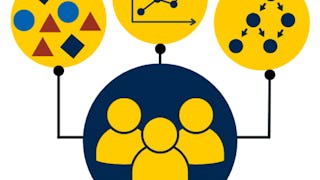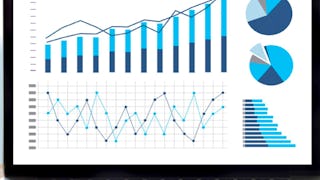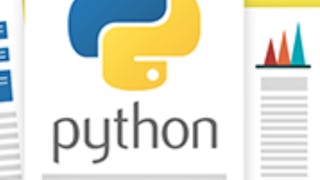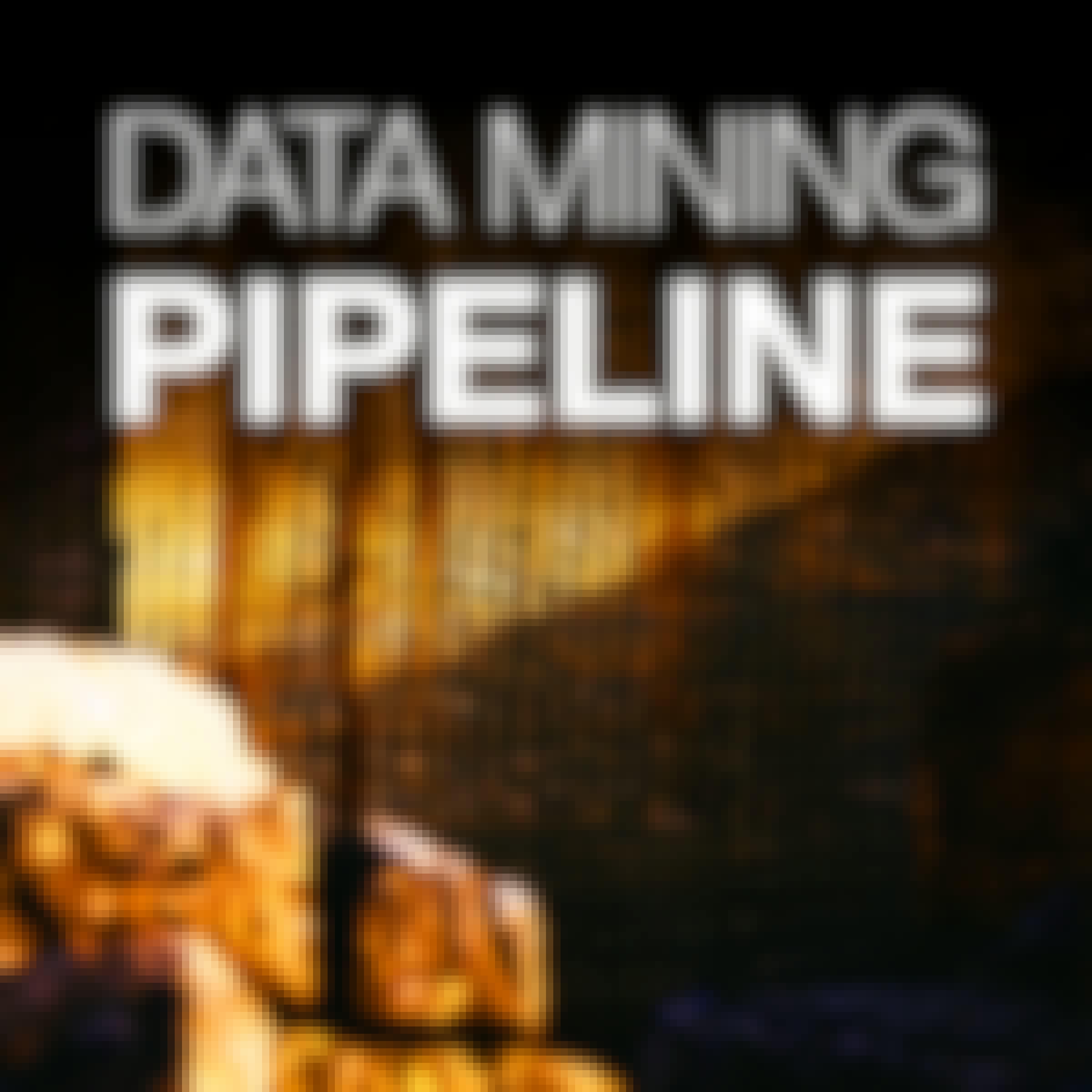- Browse
- Data Mining
Data Mining Courses
Data mining courses can help you learn data preprocessing, pattern recognition, and predictive modeling techniques. You can build skills in clustering, classification, and anomaly detection, that support extracting meaningful insights from large datasets. Many courses introduce tools like Python, R, and SQL, along with software such as RapidMiner and Weka, to help you apply these skills in real-world data analysis projects.
Popular Data Mining Courses and Certifications
 Status: Free TrialFree TrialU
Status: Free TrialFree TrialUUniversity of Illinois Urbana-Champaign
Skills you'll gain: Data Visualization, Data Visualization Software, Text Mining, Data Presentation, Data Mining, Interactive Data Visualization, Data Storytelling, Dashboard, Tableau Software, Plot (Graphics), Natural Language Processing, Scatter Plots, Unsupervised Learning, Data Mapping, Unstructured Data, Statistical Analysis, Graphing, Predictive Analytics, Big Data, Anomaly Detection
4.5·Rating, 4.5 out of 5 stars2.9K reviewsIntermediate · Specialization · 3 - 6 Months
 Status: Free TrialFree TrialU
Status: Free TrialFree TrialUUniversity of Colorado Boulder
Skills you'll gain: Data Mining, Anomaly Detection, Unsupervised Learning, Data Warehousing, Machine Learning Methods, Supervised Learning, Data Pipelines, Data Preprocessing, Classification Algorithms, Data Modeling, Decision Tree Learning, Data Science, Data Integration, Machine Learning Algorithms, Data Cleansing, Model Evaluation, Exploratory Data Analysis, Big Data, Analytical Skills, Data Analysis
Build toward a degree
4.1·Rating, 4.1 out of 5 stars167 reviewsIntermediate · Specialization · 1 - 3 Months
 Status: Free TrialFree TrialU
Status: Free TrialFree TrialUUniversity of Michigan
Skills you'll gain: Data Mining, Unsupervised Learning, Data Science, Anomaly Detection, Python Programming, Classification Algorithms
Advanced · Course · 1 - 4 Weeks
 Status: Free TrialFree TrialU
Status: Free TrialFree TrialUUniversity of Colorado Boulder
Skills you'll gain: Data Mining, Anomaly Detection, Unsupervised Learning, Machine Learning Methods, Supervised Learning, Classification Algorithms, Decision Tree Learning, Big Data, Data Science, Machine Learning Algorithms, Exploratory Data Analysis, Data Analysis, Analysis, Statistical Analysis, Machine Learning, Algorithms, Artificial Neural Networks, Model Evaluation
Build toward a degree
4.4·Rating, 4.4 out of 5 stars67 reviewsIntermediate · Course · 1 - 4 Weeks
 Status: Free TrialFree Trial
Status: Free TrialFree TrialSkills you'll gain: Statistical Visualization, Big Data, Data Analysis, Statistical Analysis, Apache Hadoop, Apache Hive, Data Collection, Data Mart, Data Science, Data Warehousing, Data Visualization, Analytics, Data Cleansing, Apache Spark, Data Lakes, Data Visualization Software, Relational Databases, Microsoft Excel
4.8·Rating, 4.8 out of 5 stars20K reviewsBeginner · Course · 1 - 3 Months
 Status: Free TrialFree Trial
Status: Free TrialFree TrialSkills you'll gain: Exploratory Data Analysis, Model Evaluation, Data Transformation, Data Analysis, Data Cleansing, Data Manipulation, Data Import/Export, Predictive Modeling, Data Preprocessing, Regression Analysis, Data Science, Statistical Analysis, Pandas (Python Package), Scikit Learn (Machine Learning Library), Data-Driven Decision-Making, Matplotlib, Data Visualization, NumPy, Python Programming
4.7·Rating, 4.7 out of 5 stars20K reviewsIntermediate · Course · 1 - 3 Months
What brings you to Coursera today?
 Status: Free TrialFree TrialU
Status: Free TrialFree TrialUUniversity of Illinois Urbana-Champaign
Skills you'll gain: Data Mining, Big Data, Anomaly Detection, Text Mining, Unstructured Data, Exploratory Data Analysis, Spatial Analysis, Advanced Analytics, Image Analysis, Algorithms, Classification Algorithms, Information Privacy
4.3·Rating, 4.3 out of 5 stars326 reviewsMixed · Course · 1 - 3 Months
 Status: NewNewStatus: Free TrialFree Trial
Status: NewNewStatus: Free TrialFree TrialSkills you'll gain: Extract, Transform, Load, Data Validation, Data Transformation, Applied Machine Learning, Object-Relational Mapping, Data Wrangling, Data Cleansing, Data Manipulation, Data Integration, Web Scraping, Data Quality, Data Pipelines, Pandas (Python Package), Descriptive Statistics, Data Modeling, Data Science, Python Programming, Scikit Learn (Machine Learning Library), Extensible Markup Language (XML), Data Analysis
Beginner · Specialization · 1 - 4 Weeks
 Status: PreviewPreviewE
Status: PreviewPreviewEEindhoven University of Technology
Skills you'll gain: Business Process, Process Analysis, Process Improvement, Business Process Management, Data Mining, Business Process Modeling, Process Optimization, Data Processing, Operational Analysis, Performance Analysis, Real Time Data, Data-Driven Decision-Making, Data Science, Verification And Validation, Model Evaluation
4.7·Rating, 4.7 out of 5 stars1.3K reviewsIntermediate · Course · 1 - 3 Months
 Status: Free TrialFree TrialU
Status: Free TrialFree TrialUUniversity of Colorado Boulder
Skills you'll gain: Data Mining, Data Warehousing, Data Pipelines, Data Preprocessing, Data Modeling, Data Integration, Data Cleansing, Model Evaluation, Data Analysis, Exploratory Data Analysis, Data Manipulation, Data Quality, Applied Machine Learning, Statistical Modeling
Build toward a degree
3.9·Rating, 3.9 out of 5 stars108 reviewsIntermediate · Course · 1 - 4 Weeks
 Status: Free TrialFree TrialU
Status: Free TrialFree TrialUUniversity of California, Irvine
Skills you'll gain: Analytical Skills, Data Ethics, Data Mining, Data Strategy, Data Science, Business Analytics, Data Analysis, Big Data, Analytics, Business Intelligence, Descriptive Analytics, Data Literacy, Predictive Analytics, Data Processing, Small Data
4.2·Rating, 4.2 out of 5 stars155 reviewsIntermediate · Course · 1 - 4 Weeks
 Status: Free TrialFree TrialU
Status: Free TrialFree TrialUUniversity of Illinois Urbana-Champaign
Skills you'll gain: Unsupervised Learning, Data Mining, Applied Machine Learning, Machine Learning Algorithms, Model Evaluation, Statistical Methods, Algorithms, Data Structures, Data Visualization
4.5·Rating, 4.5 out of 5 stars408 reviewsMixed · Course · 1 - 3 Months
In summary, here are 10 of our most popular data mining courses
- Data Mining: University of Illinois Urbana-Champaign
- Data Mining Foundations and Practice: University of Colorado Boulder
- Data Mining in Python: University of Michigan
- Data Mining Methods: University of Colorado Boulder
- Introduction to Data Analytics: IBM
- Data Analysis with Python: IBM
- Pattern Discovery in Data Mining: University of Illinois Urbana-Champaign
- Data Science Fundamentals, Part 1: Pearson
- Process Mining: Data science in Action: Eindhoven University of Technology
- Data Mining Pipeline: University of Colorado Boulder
Frequently Asked Questions about Data Mining
Data mining is the process of discovering patterns and extracting valuable information from large sets of data. It combines techniques from statistics, machine learning, and database systems to analyze data and uncover insights that can inform decision-making. The importance of data mining lies in its ability to help organizations make sense of vast amounts of information, leading to improved strategies, enhanced customer experiences, and increased operational efficiency.
A variety of job opportunities exist in the field of data mining. Positions such as data analyst, data scientist, business intelligence analyst, and machine learning engineer are common. These roles often involve analyzing data to identify trends, developing predictive models, and providing actionable insights to drive business decisions. As organizations increasingly rely on data-driven strategies, the demand for skilled professionals in data mining continues to grow.
To succeed in data mining, you should develop a range of skills. Key competencies include statistical analysis, programming (often in languages like Python or R), data visualization, and machine learning techniques. Familiarity with databases and data manipulation tools is also essential. Additionally, strong problem-solving abilities and critical thinking skills will help you interpret data effectively and communicate your findings to stakeholders.
There are several excellent online courses available for those interested in data mining. For a comprehensive learning experience, consider the Data Mining Specialization or the Data Mining Foundations and Practice Specialization. These programs cover essential concepts and practical applications, providing a solid foundation for your data mining journey.
Yes. You can start learning data mining on Coursera for free in two ways:
- Preview the first module of many data mining courses at no cost. This includes video lessons, readings, graded assignments, and Coursera Coach (where available).
- Start a 7-day free trial for Specializations or Coursera Plus. This gives you full access to all course content across eligible programs within the timeframe of your trial.
If you want to keep learning, earn a certificate in data mining, or unlock full course access after the preview or trial, you can upgrade or apply for financial aid.
To learn data mining, start by exploring foundational concepts through online courses or textbooks. Engage with practical exercises to apply what you learn, and consider working on real-world projects to gain hands-on experience. Joining online forums or study groups can also enhance your understanding and provide support from peers.
Typical topics covered in data mining courses include data preprocessing, exploratory data analysis, clustering, classification, and regression techniques. You may also learn about data visualization, model evaluation, and the ethical considerations surrounding data usage. These topics equip you with the knowledge needed to analyze and interpret data effectively.
For training and upskilling employees in data mining, consider courses like Data Mining in Python or Data Mining Methods. These courses provide practical skills and knowledge that can be directly applied in the workplace, helping teams leverage data for better decision-making.










